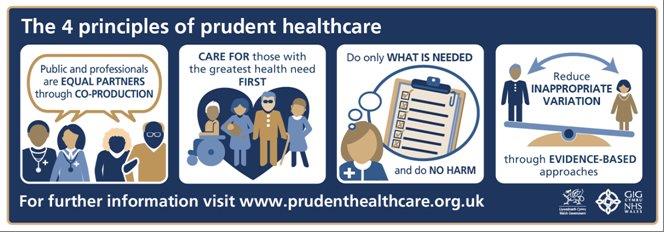Value-based healthcare - a panacea or a pipedream?
Value-based healthcare - a panacea or a pipedream?
There is growing momentum globally around the theory of value-based healthcare and its contribution to developing better and more sustainable healthcare systems around the world. Described by Professors Porter and Teisberg from Harvard Business School, it has been billed in the US as the theory to save healthcare from the excesses of 'fee for service' in insurance-based funding systems, but can it really achieve its aims of better outcomes at lower cost and can it be effectively translated to other systems around the world? Overall I am a fan of looking at healthcare through this lens but there are complications with its application and delivery which it is important to point out.The theory is comprised of six pillars:
1. Outcome measurement - outcome measurement that matters to patients. Here the work of the International Consortium for Healthcare Outcomes Measurement (ICHOM) is a useful reference.
2. Cost measurement
3. Expanded service across geography - from Porter's perspective this really seems to be about growing your business by being really expert in one area rather than providing a breadth of services.
4. Enabling IT platform
5. Integrated Practice Units
6. Bundled payments
Positives
Value-based healthcare pulls together a system of care around a patient for a particular condition - this creates a 'left shift' in the patient pathway, where better outcomes at lower cost are achieved through doing basic things really well. eg focus on prevention and early intervention. Arguably it also has the potential to improve outcomes through innovation and quality improvement and can reassure us about patient safety.
Measuring costs and outcomes across the entire patient journey makes a lot of sense, and for that you need an IT platform and good analytical capability.
Integrated care is very desirable and beneficial for outcomes and improves the experience of care and the concept of value in healthcare does have the potential to unite the multidisciplinary team through developing a common language of outcomes and costs.
Negatives
The solutions put forward do not adequately take account of population health - how do we deal with the big public health issues eg of obesity, alcohol overconsumption and drug addiction which have a major impact on outcomes down the track? Which integrated practice unit is responsible for this and how will we structure the finance around these?
Potential for care to remain fragmented. What's in and what's out of the integrated practice unit? How do we achieve holism in care?
Increasingly I see that Porter is beginning to address these criticisms by advocating care around population segments, which goes some way towards solving the fragmentation problem.
Value is a relative concept - many of the current Porter case studies may not constitute value for money if a global comparison is made. How much are we willing to spend and what is a good enough outcome?
How do we take into account patient preferences and goals and how far are people willing and able to travel for care? These narratives add a richness to the quality of care that cannot easily be captured in big data analyses.
The fact is that medics do need to assume a degree of responsibility for stewardship of healthcare resources, as we are the principal spenders! This is probably more embedded in UK medical culture than US culture right now and I have my doubts that Porter's solutions to the escalating cost of healthcare generated by current 'fee for service' models will curtail costs in the way that is imagined.
There are significant implementation challenges for value-based healthcare - it requires a huge cultural change as well as the building of infrastructure to measure, analyse, present and utilise outcomes and costing data.Double running with legacy systems, lack of resourcing and restructuring may act as further barriers.
Ultimately not every system in the world has the same drivers as US healthcare and if you don't agree with competition in healthcare, you won't entirely agree with Professor Porter. In the US institutions are trying to drive a version of value by :
i) increase their profit margins demonstrating better results than their neighbours and attracting a larger patient base
ii) contain costs through innovation and integration of services eg better use of skill mix. Better outcomes cost less because there are fewer complications down the track, but those savings may be a long way into the future, and not realised in the same location.
In a publicly-funded institution like the NHS which has a finite budget and therefore always a cost pressure, the attraction of value-based care may be to continue to cut costs. But this is not a zero sum game - there is a point at which more investment is needed, or at least reallocation for value (Sir Muir Gray) and this is structurally and culturally difficult to achieve for the same reasons as ii) above. The systematic measuring of outcomes will shine a light not only where interventions of low value need to be reduced (whether that is inappropriate imaging, testing or a defunct procedure), but also where there is under-treatment and where investment must be made. The funding mechanism will depend upon which devolved nation you are in...in England, bundled payments between payer and provider are perfectly possible. In Wales and Scotland's integrated health boards, we may be looking at mini 'IPU's' with their own programme budgets within a larger 'mother ship' organisation responsible for population health.
There are some very sound and helpful principles underlying the theory of value-based healthcare, but if it is to be widely applied and adopted around the world, it will need to flex and evolve to meet the needs, context and cultural expectations of different nations.


Comments
Post a Comment